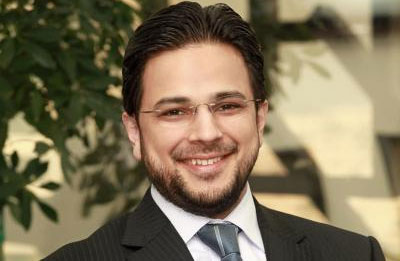
Quality of growth vital for Islamic finance industry
Manama, December 11, 2012
The quality of growth in Islamic finance is more important than merely its numbers, said an expert as the industry moves towards greater regional penetration and branches into frontier markets such as South Asia and Africa.
"The industry is still concentrated in a few core markets such as Saudi Arabia, Iran, Malaysia and the UAE," Ernst and Young global Islamic banking centre partner Ashar Nazim told the Gulf Daily News, our sister publication.
"Islamic finance will be rolled out to new frontier markets such as Nigeria, Egypt, Iraq, Mauritania and Uganda, which are introducing legislations for the industry at this point."
Global Islamic banking assets are set to cross $1.8 trillion next year, up from $1.3 trillion last year, according to Ernst and Young's 'World Islamic Banking Competitiveness Report 2013'. The report was launched on the sidelines of the World Islamic Banking Conference 2012.
Bahrain's Islamic asset market share amounted to 26.9 per cent with $13 billion assets, according to the report.
The top 20 Islamic banks worldwide registered a growth of 16 per cent in the last three years with Saudi Arabia emerging as the largest market for Islamic assets.
Bahrain's Islamic finance industry endured common challenges faced by regional and international markets.
"The challenges are about sub-scale operations and quality of asset books and a weak risk culture that needs to be improved upon," said Nazim. "The very generic, one-size-fits-all proposition is no longer going to work."
Segmentation of the market and responding to its varied needs is the way to grow for Bahrain-based Islamic financial institutions.
Globally, the industry will witness greater transformation in the coming year around three 'R's - regulation, risk and retail banking.
"Islamic financial institutions will attempt to take on the conventional big boys, which will prove to be a challenge," he said.
"The Central Bank of Bahrain has come out with new rules and regulations on risk management for Islamic banks.
"Bahrain is playing an important role in furthering the growth of the industry. The numbers will be there, but while going forward the quality of growth will matter," he pointed out.
"Clearly, what Bahrain is looking at is how we can bring more quality to this growth, in terms of risk and capital management and the way the banking business is run," he stated.
Risk transformation formed the other aspect as Islamic banks suffered from a very basic risk culture, hence prompting a re-look. "These institutions got burnt during the financial crisis because they had huge provisions to book," said Nazim. "As a result, their assets were written down, reducing their quality," he added.
Islamic finance has only been partially able to fill the vacuum left by the retreat of European institutions as only 13 Islamic banks have equity of more than $1 billion.
Western corporate institutions will continue to be interested in Islamic finance either to tap into its liquidity or in order to enter emerging markets. "Islamic banking, as it gets closer to ethical and socially responsible finance, will be a concept that will be embraced by the West," he added.-TradeArabia News Service







